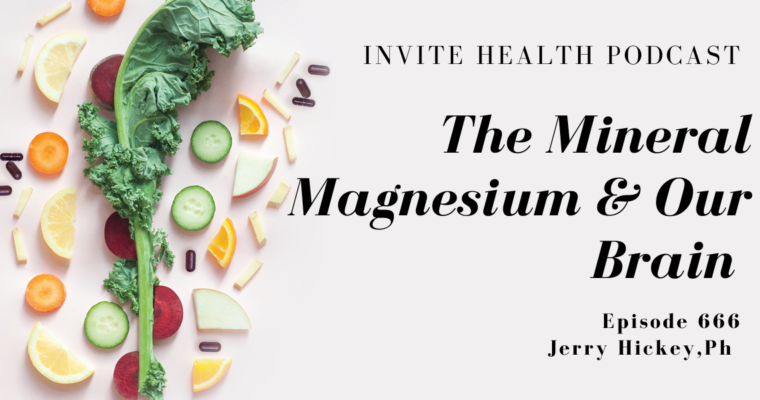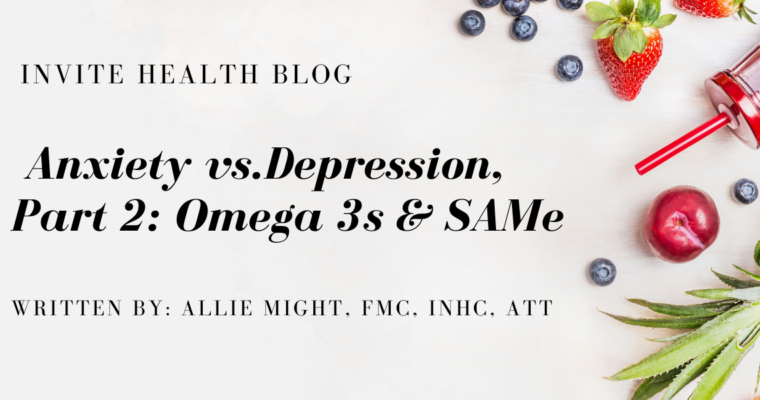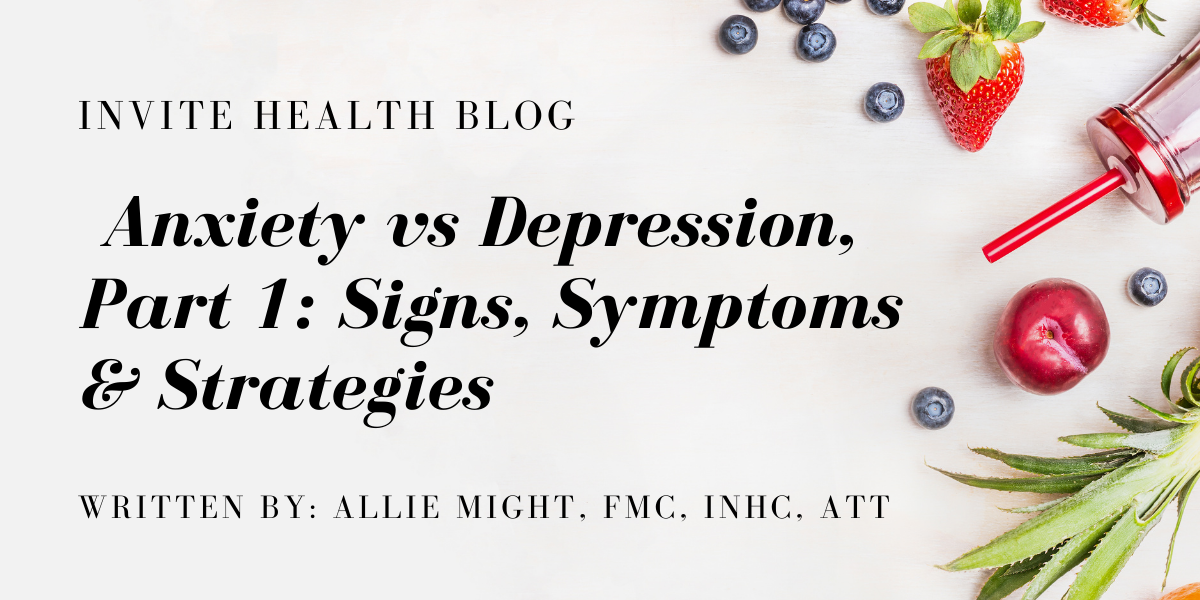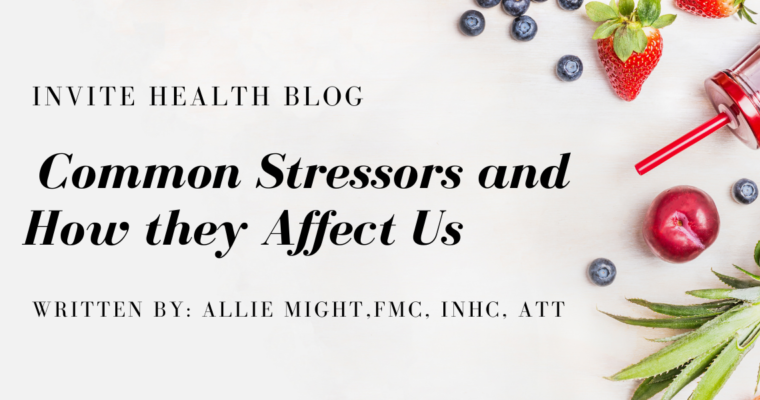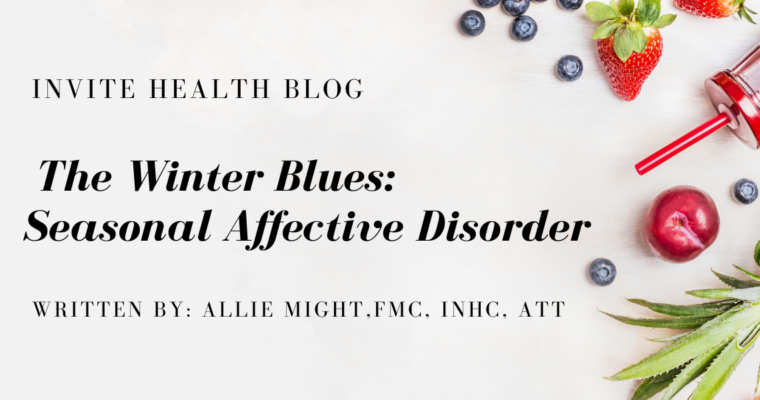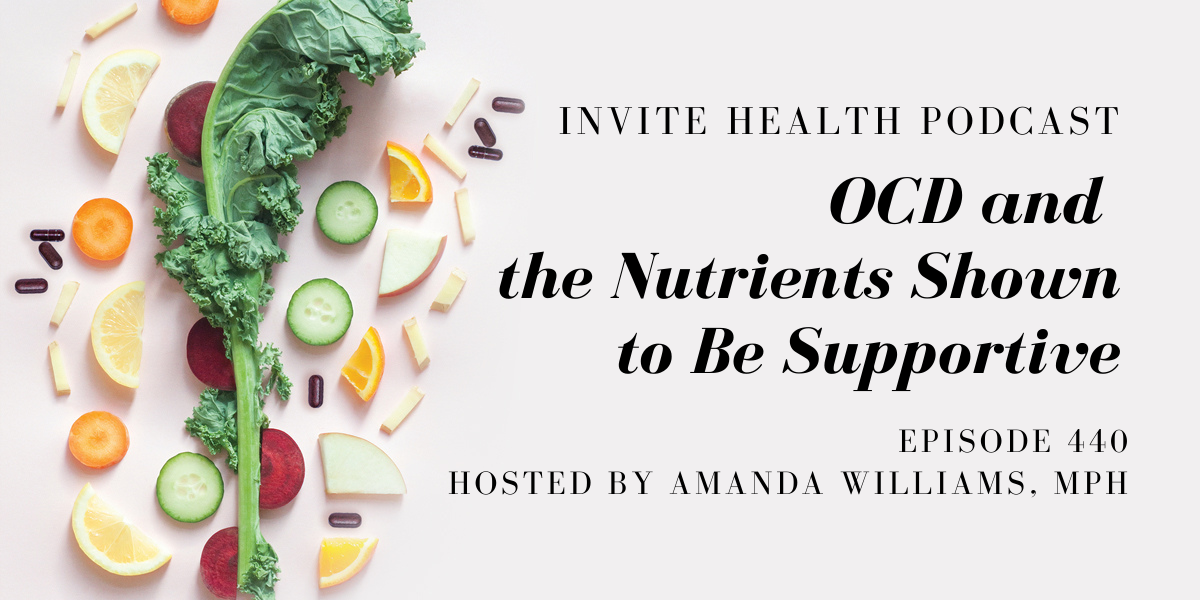By: Allie Might, FMC, INHC, ATT
For further questions or concerns email me at [email protected]

We’ve been talking a lot about stress and how it can affect our well-being. No conversation about stress management would be complete without understanding anxiety and depression. Let’s take a look at these and see how they differ from common, everyday stress. †
What is anxiety? The American Psychological Association defines anxiety as “an emotion characterized by feelings of tension, worried thoughts, and physical changes like increased blood pressure”. The American Psychiatric Association tells us that there are many different types of anxiety disorders, including but limited to the following: †
- The fear of something we can’t overcome. †
- Social anxiety disorder…when being in social situation is overwhelming. †
- Panic disorders…recurring panic attacks as a response to certain situations†
I like to describe anxiety as the body’s way of reacting to stress. †
Depression can be seen in different forms. There’s bipolar depression (times of lows and manic highs), postpartum depression (after childbirth) and persistent depressive disorder (mild, long-term depression). However, for this article, let’s focus on depression, also referred to as clinical depression or major depressive disorder. When we think of depression, this is commonly what we think of. The National Institute of Mental Health defines depression as “a common but serious mood disorder that causes symptoms which affects how you feel, think and handle normal daily activities”. †
When it comes to the signs of anxiety and depression, they are very similar. Some common signs may include fatigue, panic attacks, and changes in appetite, lack of interest in favorite activities or in extreme cases thoughts of death or suicide. For a more detailed list of signs of anxiety and/or depression, check out https://www.mayoclinic.org/diseases-conditions/anxiety/symptoms-causes/syc-20350961 . However, those that have been diagnosed with depression commonly will more intense and longer lasting symptoms. Experiencing signs such as these in certain situations may be an indication of anxiety or depression and should be assessed by a doctor. †
If you or anyone you know is showing signs of depression, contact your doctor or encourage them to do so. The Center for Disease Control and Prevention (CDC) offers additional information, as well as 24-hour hotlines and assistance at the following: †
https://www.cdc.gov/suicide/index.html
So how can one cope with anxiety and/or depression? Here are some of my go-to ways to find some relief, and are even suggested in an article entitled “Depression vs Anxiety: Which One Do I Have?” from WebMD has some effective suggestions to help cope:
- Talking with your doctor or a therapist. †
- Sometimes your doctor may feel like medication is necessary, there is no shame in this as it can be extremely effective. †
- Whether it’s a visit to the gym, a class, light stretching or a daily walk outside, this can be a mood and confidence booster. †
- Try meditation or deep breathing.
- Avoid sugar, alcohol and processed food and eat more fruits and vegetables (try Greens Hx and Reds Hx)
- Ask for help…check in with family and friends to maintain strong connections. †
Understanding the right coping strategies can be key in helping to manage mood. †
ICYMI: COMMON STRESSORS AND HOW THEY AFFECT US>>READ NOW
SUPPLEMENTATION
When it comes to supplementation, B-vitamins can be the missing link in our mental well-being. Let’s look at the three that are commonly studied for anxiety and depression…folate and vitamins B-6 and B-12. †
A lot of attention has been given to folate, or folic acid, lately and is being studied for its roll in brain health and depression. An article from Winchester†
Hospital discusses some of the findings from these studies. It is believed that having a deficiency in folic acid may be a contributing factor of depression and its symptoms. The studies in the article show that when adding folic acid, in combination with anti-depression medication, symptoms improved as opposed to those given a placebo. The article “Depression Won’t Go Away? Folate Could Be the Answer” from Psychology Today also suggests that a folate deficiency can be a risk factor when looking at depression. It recommends eating healthy foods that are rich in folate such as whole grains, beans and legumes. If you have trouble absorbing folate, it could be because there may be a genetic mutation, MTHFR, which may be causing this problem. A simple, non-invasive, genetic test can be done to see if someone has this mutation. If so, L-Methyl folate can be helpful and better absorbed. †
An article “Vitamin B6 May Reduce Anxiety Symptoms” from Medical News Today, discusses how deficiencies in B6 may be a factor in experiencing anxiety and/or depression. The study shows that adding 100mg of Vitamin-B6 may be helpful in reducing anxiety by helping the body to produce chemical messengers in the brain.†
When looking at Vitamin-B12, the Mayo Clinic published an article titled “What’s the Relationship between Vitamin B12 and Depression”. It suggests that those with conditions such as celiac or Crohn’s disease, as well as vegans and vegetarians are often prone to being deficient in Vitamin-B12. This can cause an increased risk for anxiety and/or depression. Proper supplementation of this vitamin may help manage health, mood but isn’t necessarily a substitution for more traditional treatments. It may be recommended to use a combination of traditional and alternative therapies.†
Next week, we will continue this important topic to discuss supplements such as SAMe and Omega-3s.†
ICYMI: KRILL OIL, OR FISH OIL. PICK ON AND TAKE IT- PART 2. INVITEⓇ HEALTH PODCAST, EPISODE 625>>LISTEN NOW
REFERENCES
https://www.apa.org/topics/anxiety
https://www.psychiatry.org/patients-families/anxiety-disorders/what-are-anxiety-disorders
https://www.mayoclinic.org/diseases-conditions/anxiety/symptoms-causes/syc-20350961
https://www.nimh.nih.gov/health/topics/depression
https://www.cdc.gov/suicide/index.html
https://www.webmd.com/depression/depression-or-anxiety
https://www.winchesterhospital.org/health-library/article?id=40045
https://www.psychologytoday.com/us/blog/the-integrationist/201310/depression-wont-go-away-folate-could-be-the-answer
https://www.medicalnewstoday.com/articles/vitamin-b6-may-reduce-anxiety-symptoms-study-shows#Large-amounts-of-B6,-B12
https://www.medicalnewstoday.com/articles/vitamin-b6-may-reduce-anxiety-symptoms-study-shows#The-vitamin-that-helped
https://www.mayoclinic.org/diseases-conditions/depression/expert-answers/vitamin-b12-and-depression/faq-20058077


